5 conclusions from the 2019 Opening Weekend
Deceuninck-QuickStep's dominance and the failure of other teams to step up
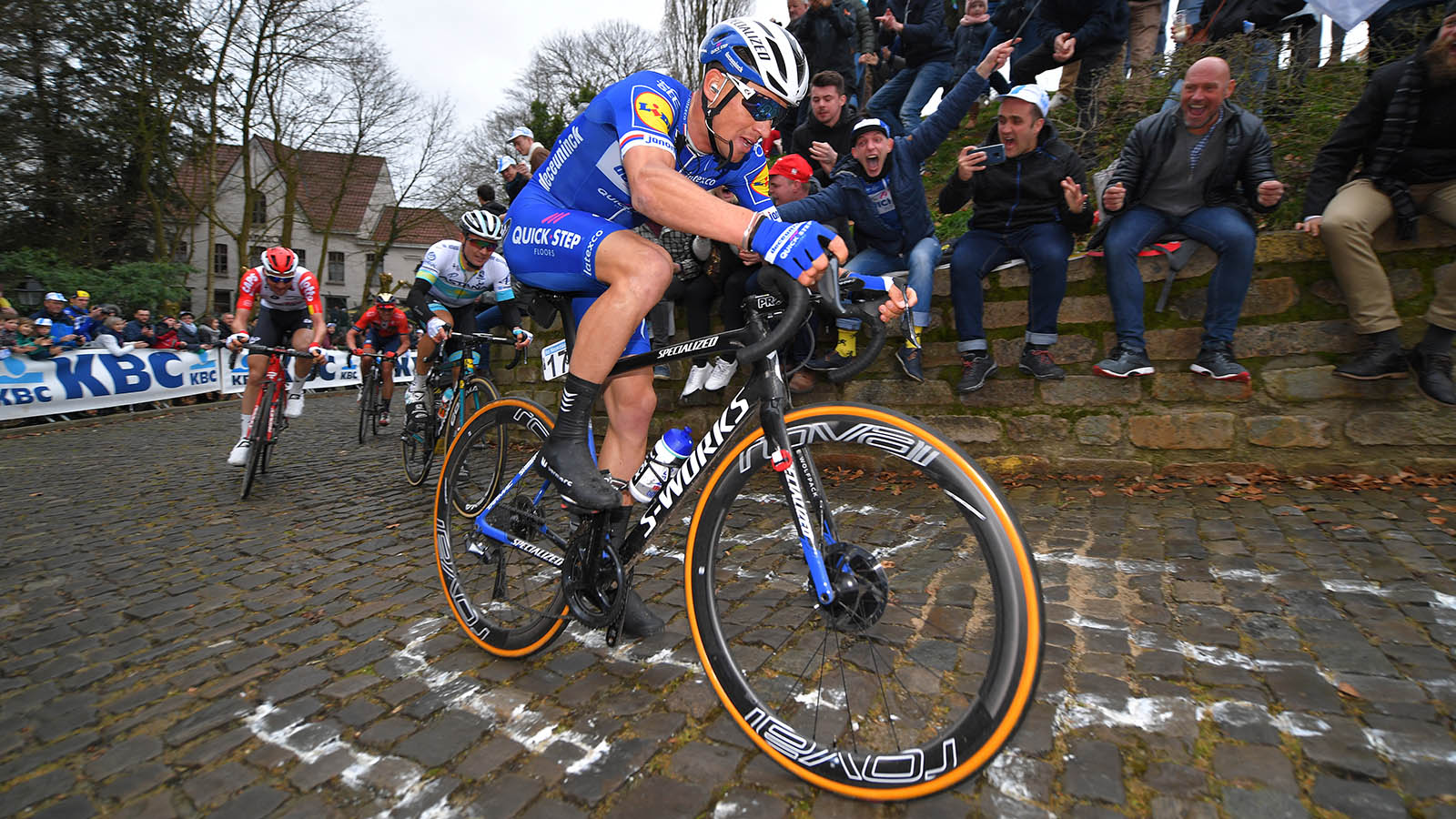
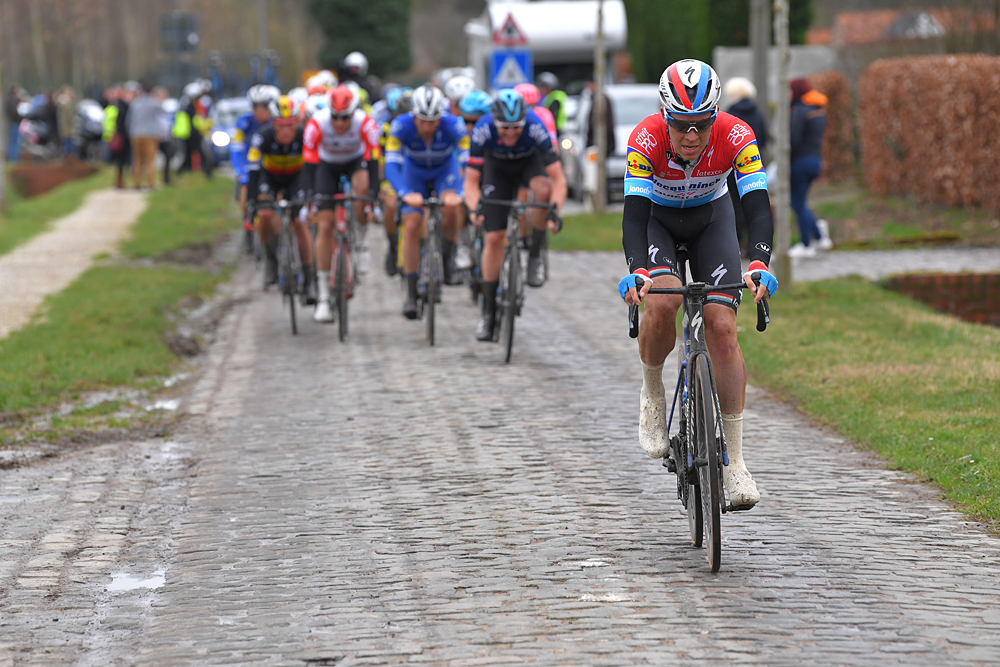
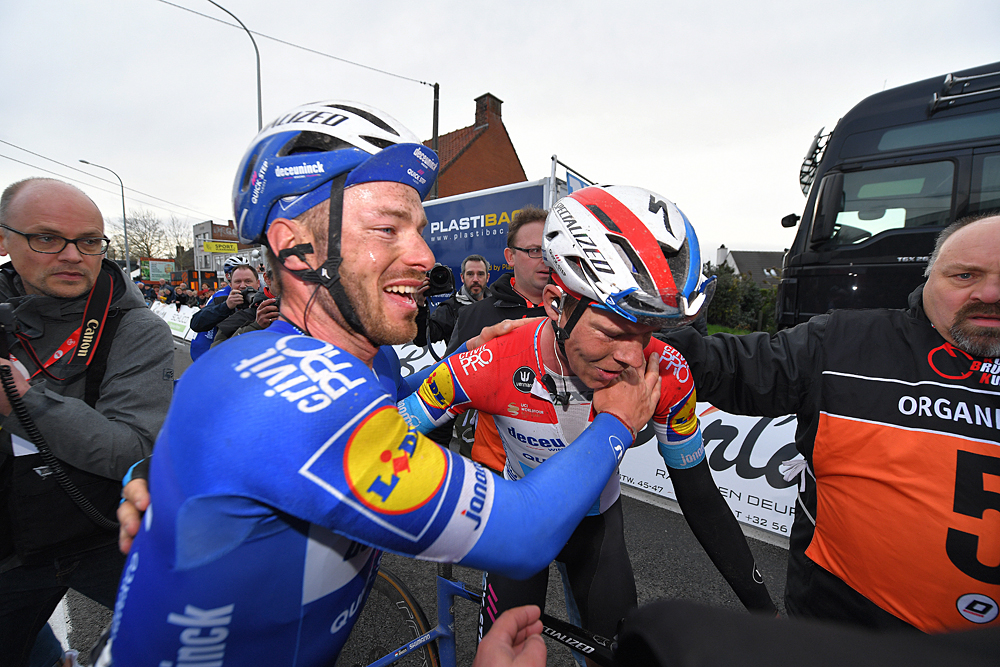
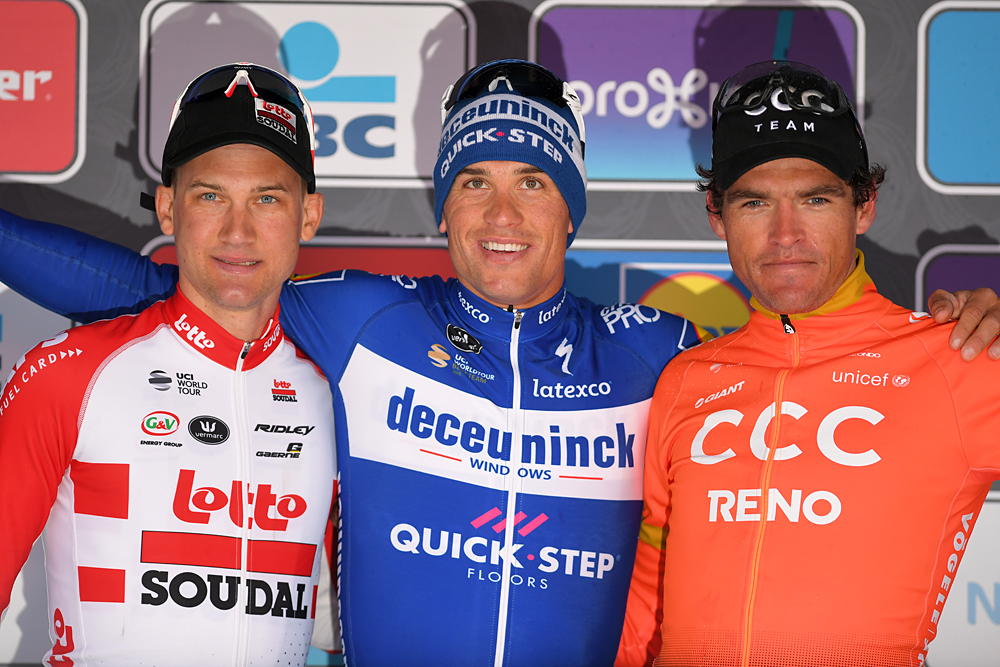
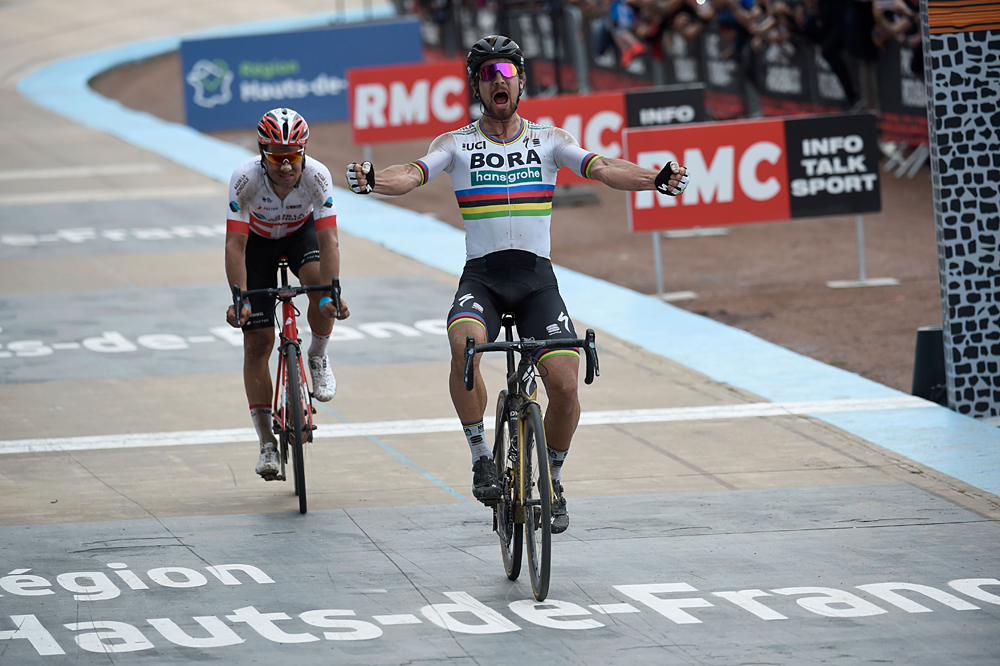
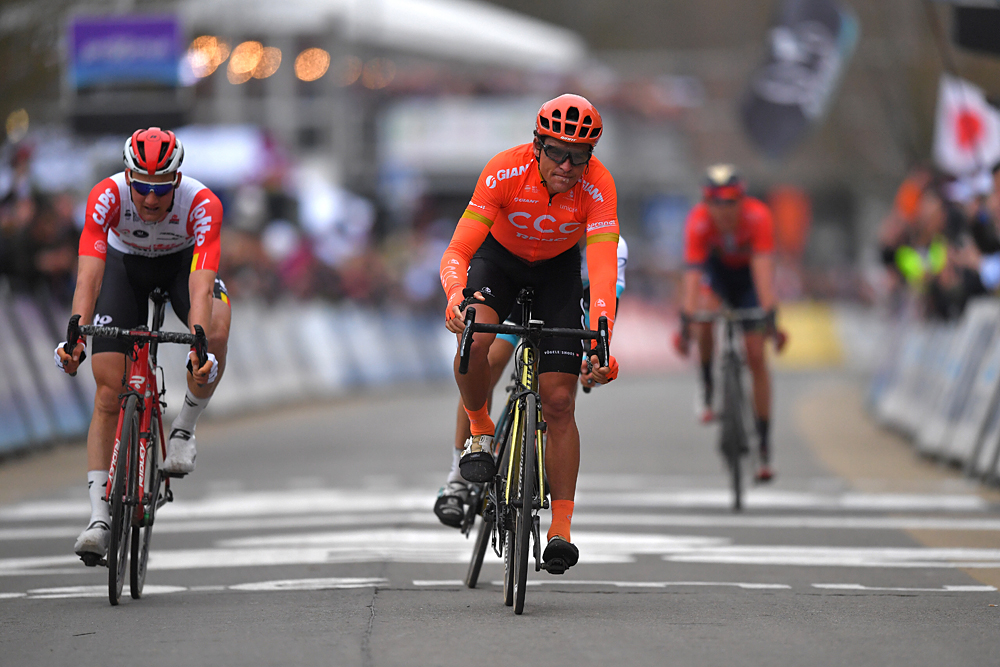
Some would say that the 2019 season only really kicked off with the start of the Spring Classics in Belgium this past weekend, with the Omloop Het Nieuwsblad on the Saturday, followed the next day by Kuurne-Brussel-Kuurne.
Deceuninck-QuickStep, of course, won both races, thanks to a resurgent Zdenek Stybar and the ever-improving Bob Jungels, respectively. The Belgian WorldTour team's dominance was all-consuming, and the other teams are going to have to find a way to beat them – and fast, as the races were also a chance to see how team leaders and their squads might fare at northern Europe's two biggest races in early April: the Tour of Flanders and Paris-Roubaix.
Here, then, are Cyclingnews' takeaways from the 2019 Opening Weekend.
Trek-Segafredo need a spark
On Friday evening, ahead of the Opening Weekend racing, a measured-yet-confident Steven de Jongh expressed sincere belief in his Trek-Segafredo riders' ability to win a Classic. His words were built on logic; after all, John Degenkolb has two Monuments to his name and is once again a threat; Jasper Stuyven has the necessary weapons in his arsenal; and Mads Pedersen – although still a work in progress – clearly has the talent, too.
However, within 24 hours of De Jongh's pledge, Trek-Segafredo's spring campaign was on the ropes. It wasn't hard to feel sympathy for De Jongh, who, although shell-shocked after his riders' dismal performances, at least had the courage to provide a frank assessment of the team's performance. To do so without throwing anyone under the bus took restraint.
The team failed to post a rider in the top 39 at the Omloop Het Nieuwsblad, and the same pattern inevitably followed the next day at Kuurne-Brussel-Kuurne, with Edward Theuns their highest finisher in 14th. Only one other rider finished. While some teams could point to major crashes – like Lotto Soudal – or to illness – as Dimension Data did – Trek-Segafredo were simply off the pace.
One ray of light at this stage is that there's still time between now and the next cobbles encounter, so one commanding performance can build confidence and filter through the ranks. But while Degenkolb is yet to feature this spring, it's the core of the team that took part in Opening Weekend that needs to deliver – if not for themselves, then at least for poor De Jongh.
Get The Leadout Newsletter
The latest race content, interviews, features, reviews and expert buying guides, direct to your inbox!
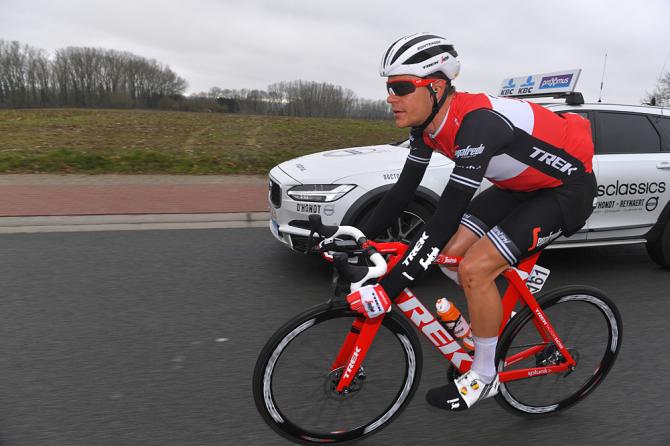
Dimension Data get a pass
What should have been the start of a new dawn at Dimension Data turned into a damp squib, with illness wrecking the team's hopes for the entirety of Opening Weekend.
They arrived with new signing and defending Omloop champion Michael Valgren, and with a supporting cast that included Edvald Boasson Hagen, Julien Vermote, Lars Bak, and the resurgent Giacomo Nizzolo. They left Kuurne without a single finisher, and with the team's Twitter feed painting a desolate picture. First came a tweet of expectancy to announce the start of the fifth climb of the race.
What followed was complete radio silence. Then, several hours later, the next tweet.
This is but one chapter, and Dimension Data's woes from 2018 will not be overcome in a matter of weeks. Nor should their spring be defined by a single weekend. Athletes get sick – it happens – and the squad have the resources and a core that can still come good. If you have a rider of Valgren's quality in your ranks, then all you need is time before things start to click.
Deceuninck-QuickStep: The Team Sky of the cobbles
How do you solve a problem like QuickStep? That's the question virtually every team director we spoke to struggled with at the end of Kuurne-Brussel-Kuurne, after a thoroughly bruising weekend. The problem for rival teams isn't that Patrick Lefevere's squad have one leader stronger than the rest, but that they're collectively impregnable. One team boss simply shrugged at the finish of Kuurne, and pointed to the fact that, out of seven riders, Deceuninck-QuickStep had five who could win on the cobbles.
Interestingly, the consensus – or at least the public perception – is that QuickStep have harmonised and learned to race as a collective unit. That's partly true, but within the team the riders race each other to make it into the key break of the race. They know that if they complete that task, then they'll have a block of teammates covering for them in the main field. No one would dare step out of line and chase down a teammate for fear of the reaction from the Belgian press and, most certainly, sports director Wilfried Peeters.
Saturday's Omloop Het Nieuwsblad provided the perfect of example of their dominance. With eventual winner Zdenek Stybar in the decisive break of five, the Czech rider's teammates in the second group could almost dare the opposition into a futile chase. What's more, CCC Team's Greg Van Avermaet and the rest of the lead group knew that they had to ride at 100 per cent because there was no plan B within their ranks. Meanwhile, Stybar could ride tempo on the flat to ensure harmony, and then punish the competition on the climbs, and then ultimately in the finale.
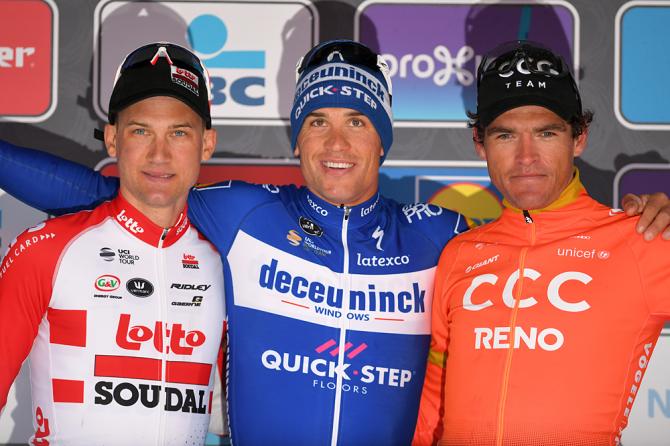
It must also be mentioned that these races aren't just taxing on the body; they're mentally demanding, too. Lotto Soudal's Marc Sergeant noted to Cyclingnews that their rider, Tim Wellens, and Van Avermaet became frustrated with each other, hence in part why it was Van Avermaet who chased down the Lotto rider when he attacked. This opened the door for Stybar, and in the space of a few seconds the race was over.
During the weekend, Deceuninck-QuickStep won both races and posted three riders inside the top 10 at both races, which is somewhat unsettling when you consider the fact that we've still not seen the best of Philippe Gilbert or Yves Lampaert, and that Bob Jungels can already be considered a genuine threat for the rest of the cobbled Classics.
On Tuesday, even a second string from Lefevere's squad proved too much for the competition at Le Samyn, with Florian Sénéchal taking the win, which was the 25-year-old Frenchman's first professional victory. This team looks every bit as dominant as Team Sky at the Grand Tours – and perhaps even more so when you consider that the Classics competition still race to win, rather than at, say, the Tour de France, where several supposed GC contenders ride conservatively to try to get a top-10 in Paris.
"On Saturday they weren't that dominant, but on Sunday they really were," remarked Sergeant. "In Kuurne, they had the winner, and then six guys behind riding in a train. That was impressive. You saw a few guys trying to chase and we had Nikolas Maes giving it everything for an entire kilometre, and it only allowed us to take back three seconds. We could see Jungels the whole time, but we couldn't catch him.
"QuickStep can continue like this," added Sergeant. "Stybar is in top shape again, and you can name any one from that team, and they're good. They're also full of confidence. They have that luxury that we don't have, and so they're always one step ahead of the other teams. That's a bit annoying."
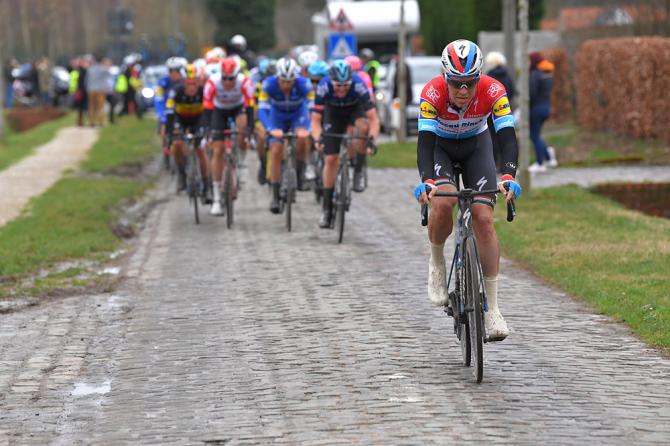
Peter Sagan and a stronger opposition can spoil Lefevere's party
What's worth remembering is that the UAE Tour clashed with Opening Weekend. The effect was a diluted opposition, with UAE Team Emirates' Alexander Kristoff and Fernando Gaviria, Team Sky's Gianni Moscon, and with a number of other teams' key domestiques – such as Bahrain-Merida's Heinrich Haussler, Dimension Data's Bernard Eisel and Jumbo-Visma's Tony Martin – all racing in the Middle East.
It may not seem important now, but had a rider like Van Avermaet had one or two more elite teammates, then the outcome at Omloop could have been different. Let's also not forget that Bora-Hansgrohe's Peter Sagan – a rider capable of defeating entire pelotons, let alone entire teams – is still on the sidelines.
There are also races, like Paris-Roubaix, in which you can beat dominance without having the strongest team around you. Luck, or more importantly bad luck, plays a significant factor in 'The Hell of the North'.
In order to combat Deceuninck-QuickStep, rival teams need to put pressure on them earlier, and with good riders. The general style of racing in the Classics in recent years has seen winning breaks launch from further and further out, and the reason for that is because QuickStep want to be ahead of the curve.
In order to do that you need special riders – something that QuickStep have in abundance – but to beat them you need to isolate them and try to even out the numbers. It worked for Kristoff in Flanders in 2015, and it's worth noting that QuickStep have 'only' won three of the cobbled Monuments since 2013.
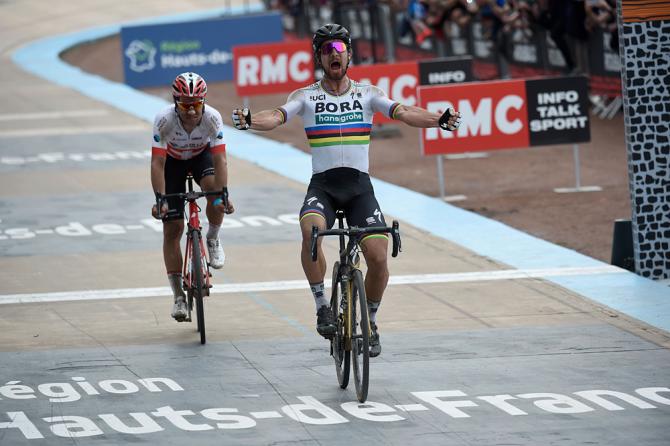
CCC justify putting almost all their eggs in the Van Avermaet basket
Ahead of Opening Weekend, the pressure was on Greg Van Avermaet and his new team to lay down a marker. The season might be only two months in, but for a team centred around just one marquee Classics specialist, this truly was the moment to stand up and deliver a performance.
Of course, more important objectives lie ahead – a win at Paris-Roubaix or the Tour of Flanders would qualify CCC Team's entire season as a success – but at Omloop Het Nieuwsblad, a determined Van Avermaet delivered.
His squad was unlucky to suffer a string of three punctures in the space of just a few kilometres – which effectively robbed them of back-up for Van Avermaet – but when the Olympic road race champion surged clear to join the winning move, the complete responsibility of the race shifted to his shoulders.
He may have lacked the punch to distance his rivals, but second place was a solid result and, although it's clear that Van Avermaet would benefit from a wing man - as he had with Daniel Oss at BMC - there was enough evidence to suggest that he will do just fine this spring.
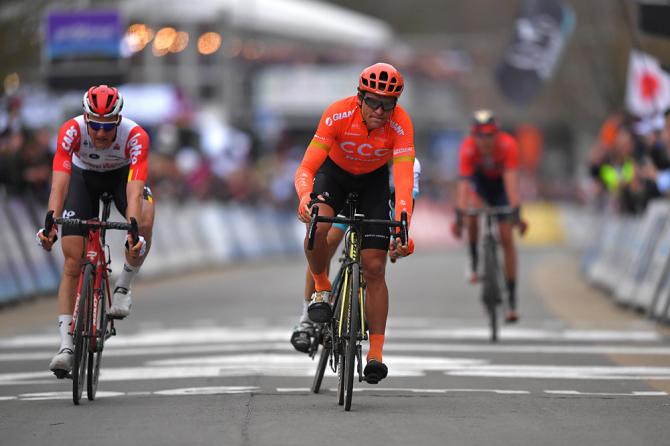
Daniel Benson was the Editor in Chief at Cyclingnews.com between 2008 and 2022. Based in the UK, he joined the Cyclingnews team in 2008 as the site's first UK-based Managing Editor. In that time, he reported on over a dozen editions of the Tour de France, several World Championships, the Tour Down Under, Spring Classics, and the London 2012 Olympic Games. With the help of the excellent editorial team, he ran the coverage on Cyclingnews and has interviewed leading figures in the sport including UCI Presidents and Tour de France winners.
